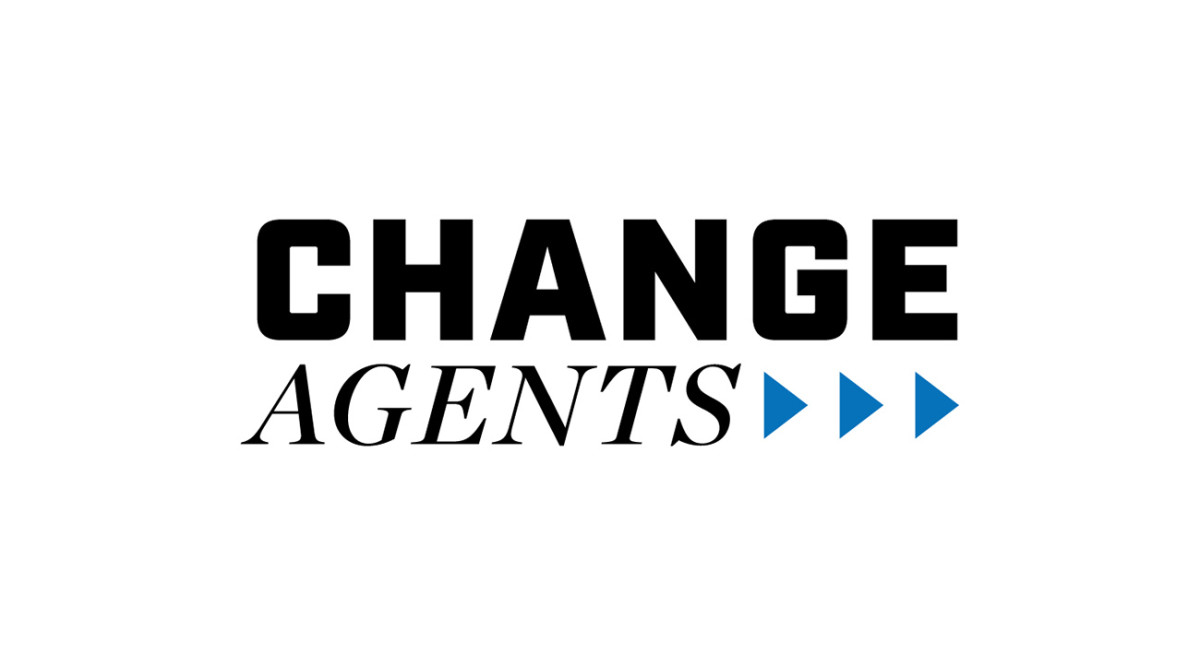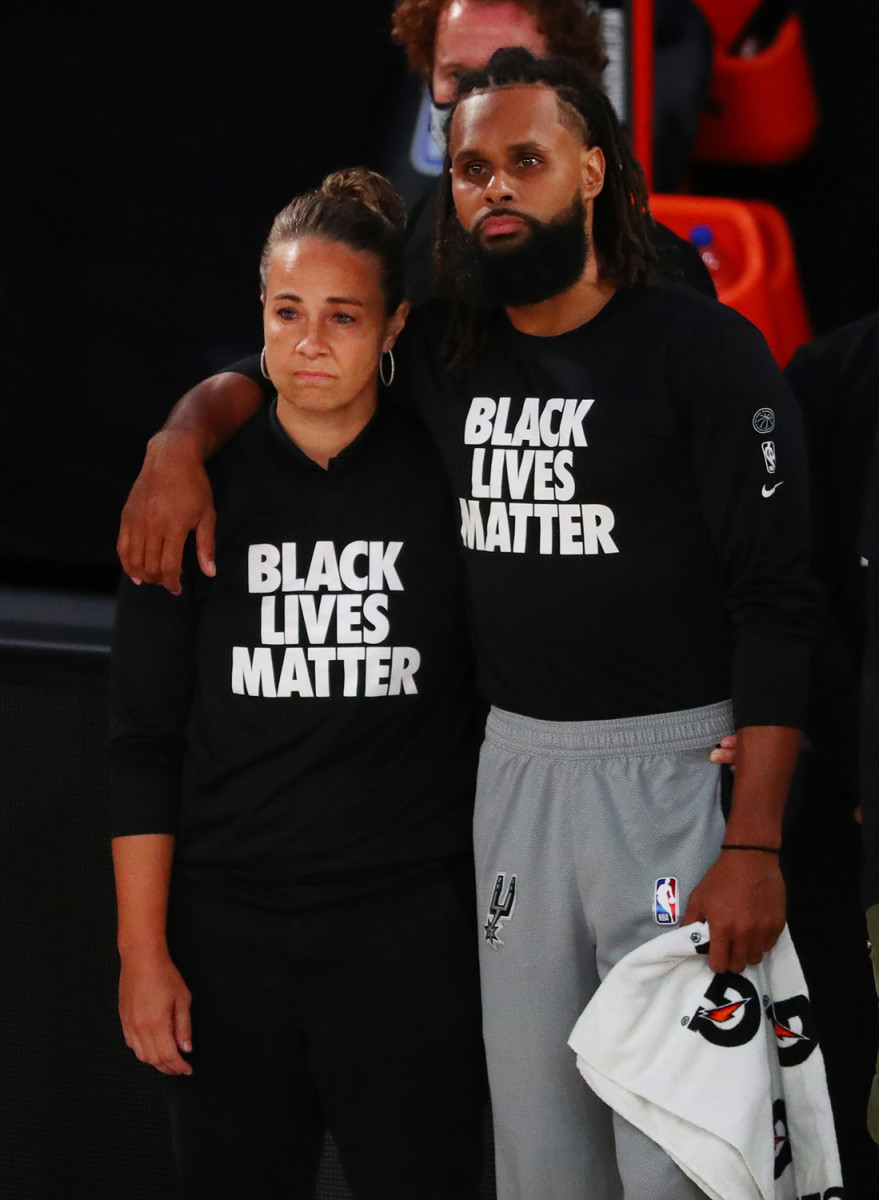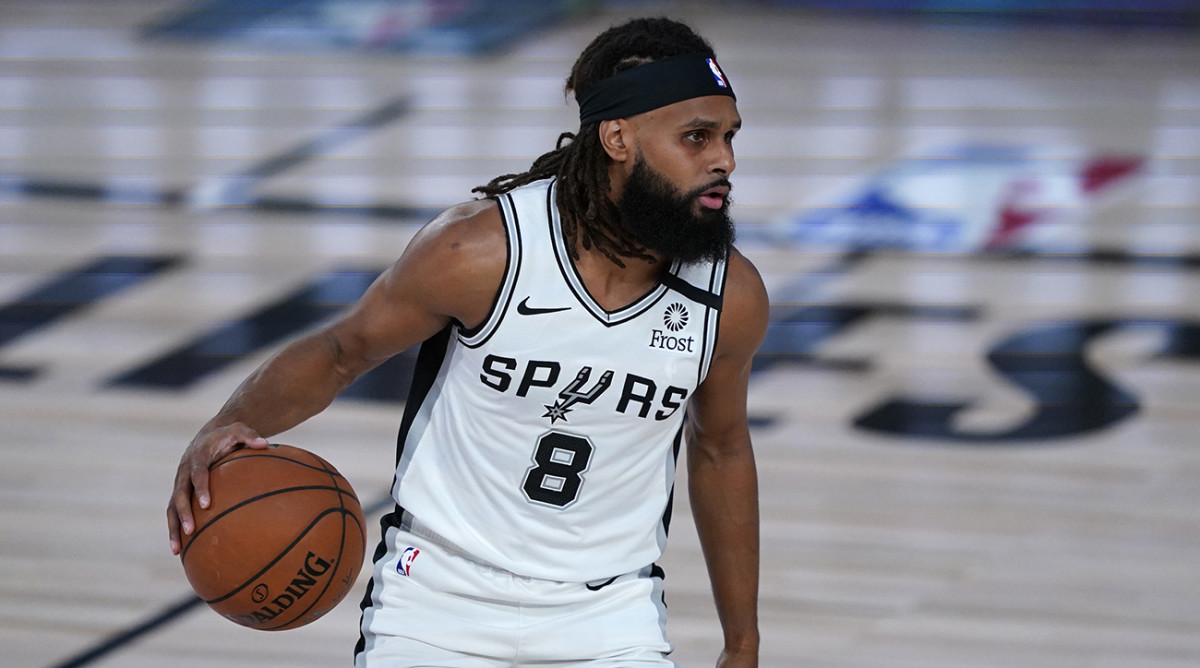Spurs Guard Patty Mills Is Determined to Enact Change
Welcome to Sports Illustrated's “Change Agents,” where the biggest names in sports have a chance to spotlight someone in their life who has been personally meaningful to them—someone who they believe is the best example of an individual fighting for change and one who has inspired the athlete to do better and be better.

The following is adapted from an interview and has been lightly edited for clarity and length.
Whenever I introduce myself, I introduce myself as Patrick Mills. But I also want to give some context up front about my identity and who I am. I come from a place that has strong community ties and a sense of kinship and family that runs on cultural values and traditions. For me, having a great understanding of community and how to play your part to make the community better is where I come from.
Both my mom and dad had much more of a significant impact directly on communities, working with the Australian government. My dad, for example, worked at the United Nations and helped the Declaration of Indigenous Rights. My mom with women's health and community health. And I guess I'm just trying to do that on my sporting journey and trying to make that same direct impact. Because we all know it's much bigger than just sports and just basketball.
A person that has influenced me in the culture part of my life, as well as the humanitarian aspect, is my wife, Alyssa. We've been together for 13 years now. And the reason I say culture is because she's originally from California, but we've been together since our college days. We both played basketball at St. Mary's. So she's been a part of our family for a very long time. Her upbringing is obviously different to mine. But the heartwarming feeling for me is that she was welcomed into my cultural, traditional family with open arms. She welcomed just as much as the other side as well. And to the point now of being together for so long, we both practice culture on a daily basis.
We went to the Torres Strait. We went fishing on the ocean or spearfishing. We went cooking in the kitchens with aunties and uncles. We did traditional dancing, even. She does all of that just as much as I do. So being on the other side of the world in Texas, both of us have had each other to be able to continue those cultural practices. She has inspired me, I'm sure, just as I have her to keep this up and keep this going, because it is our identity. That's very special to me because I feel like I have every reason to lose all of that being on the other side of the world and in this big state of Texas, playing this big game of basketball and the lights, and the NBA. But she has definitely helped me stay true to who I am and what my identity is.

I'm proud to say that I'm taking every cent earned from the eight games in Orlando in the bubble, which for me will turn out to be more than $1 million. And donating that directly back to the Black Lives Matter Australia, Black Deaths in Custody and to a recent campaign that's called the #WeGotYou campaign, which is about creating a safe environment within the sporting field, any sporting field, that's free from racism. At the end of the day, we're not fighting racism. We're highlighting, in a positive way, by bringing people together, especially those who have never witnessed or experienced racism before, and letting those people know how they can help support people who have who have been racially vilified in the sporting fields in some way so that they can feel that support, so that they can put their arm around them and say, We got you.

Other ways we’re giving back is with basketball, with Indigenous Basketball Australia. And this is the national entity, like the pinnacle for indigenous basketball within Australia. The current system in Australia right now just doesn't cater to Aboriginal and Torres Strait Islander males and females, as if we can get these kids involved in something where it takes them off the street and inserted into a program that they feel welcomed, that they feel excited about being on, that's about their health and wellbeing. And this can be something that is that is very, very powerful.
The other exciting one, a program that I'd launched with Bluestone Lane, which is an Australian cafe over here in the States, and the program's called the Keriba Ged program. Girls and boys from remote places who have no experience in hospitality and getting them to come over to the states, work within the Bluestone Lane Cafe, train them, develop them and let them have that work experience and grow that way.
Naturally, through hospitality, they're able to educate people on their own identity, just like I have done throughout basketball, but they're able to do it in a way that when they place a coffee down on a table and their appearance says one thing and the accent says something different, that that naturally starts the conversation about where they're from. That I think is super cool. If I can teach or give advice to anyone, it’s about not forgetting who you are and where you come from and being able to use that as motivation and determination to achieve anything in life, whether it's sports or not. I really think that is something powerful, that if you can hang onto it forever, that you can achieve a lot of things. And that essentially goes for anyone in any culture.
